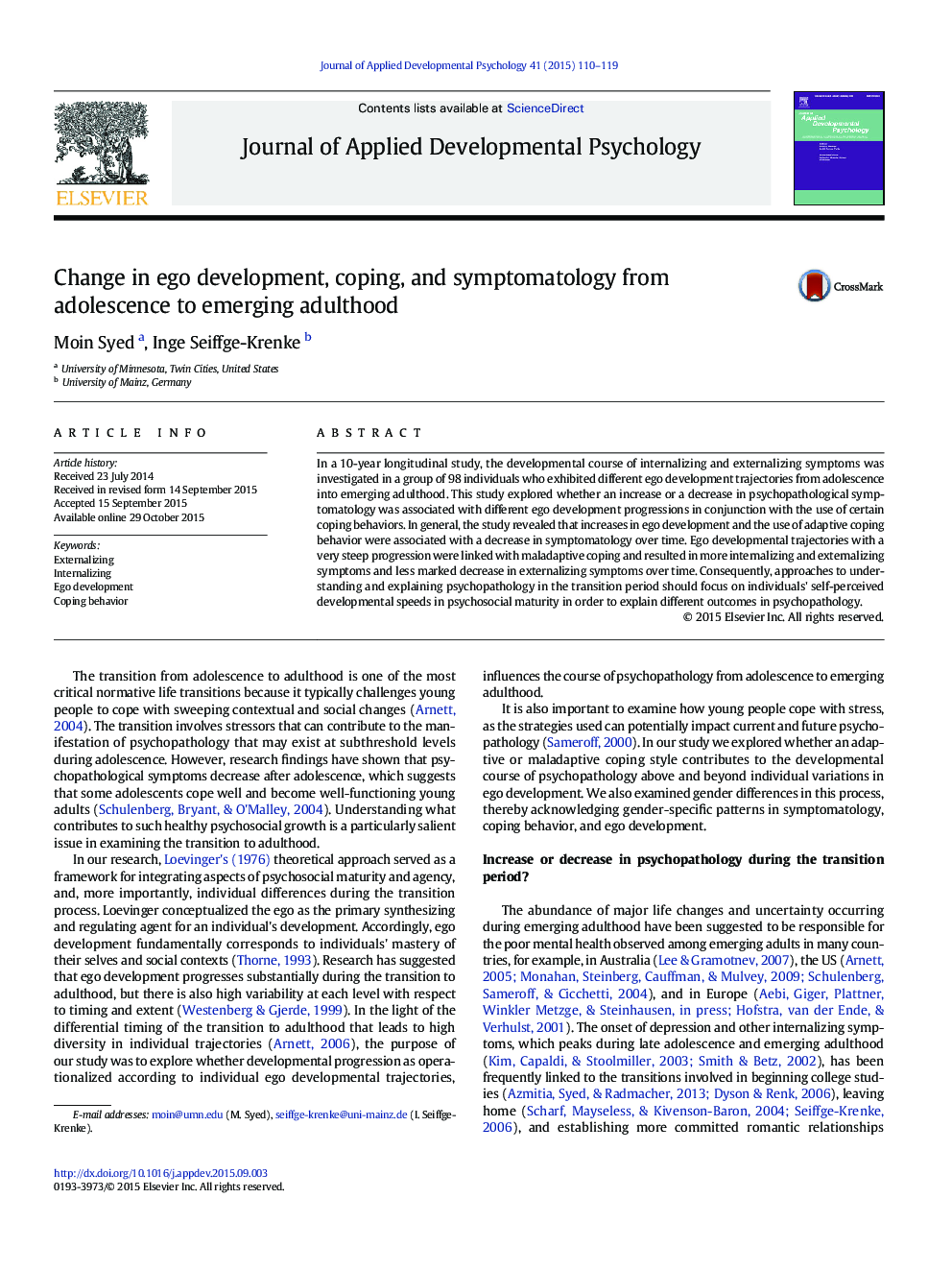| Article ID | Journal | Published Year | Pages | File Type |
|---|---|---|---|---|
| 359611 | Journal of Applied Developmental Psychology | 2015 | 10 Pages |
•Sought to understand variations in adjustment across the transition to adulthood•We examined ego development and coping as primary predictors.•Adaptive coping behavior was associated with a decrease in symptomatology over time.•Rapid ego development resulted in greater internalizing and externalizing symptoms.
In a 10-year longitudinal study, the developmental course of internalizing and externalizing symptoms was investigated in a group of 98 individuals who exhibited different ego development trajectories from adolescence into emerging adulthood. This study explored whether an increase or a decrease in psychopathological symptomatology was associated with different ego development progressions in conjunction with the use of certain coping behaviors. In general, the study revealed that increases in ego development and the use of adaptive coping behavior were associated with a decrease in symptomatology over time. Ego developmental trajectories with a very steep progression were linked with maladaptive coping and resulted in more internalizing and externalizing symptoms and less marked decrease in externalizing symptoms over time. Consequently, approaches to understanding and explaining psychopathology in the transition period should focus on individuals' self-perceived developmental speeds in psychosocial maturity in order to explain different outcomes in psychopathology.
